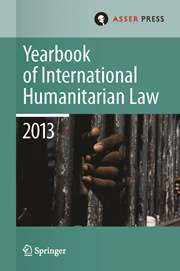Article contents
The Contemporary Law of Blockade and the Gaza Freedom Flotilla
Published online by Cambridge University Press: 15 August 2011
Extract
In the early hours of 31 May 2010, Israel intercepted six vessels on the high seas carrying humanitarian aid to Gaza (collectively called the ‘Gaza Freedom Flotilla’), which resulted in the death of nine civilians and the injury of many more. According to the Free Gaza Movement, the vessels were attempting to cross the Israeli blockade to deliver aid to the blockaded civilians in Gaza. Israel justified its actions by invoking its right to enforce the blockade and prevent contraband from reaching the territory. Nevertheless, the operation prompted moral outrage and a wave of critical statements by governments and international organisations, with many calling on Israel to end the restrictions imposed on Gaza. It also set in motion a highly contested debate on the legality of the blockade and the interception. As with nearly all aspects of the Israeli—Palestinian conflict, the debate involved intense scrutiny of the facts, the rules of international law, and the applicability of these rules to what has undoubtedly become a sui generis situation, unparalleled in its duration, complexity and equivocation.
- Type
- Focus Topic: The Gaza Blockade
- Information
- Copyright
- Copyright © T.M.C. Asser Instituut and the Authors 2010
- 7
- Cited by


